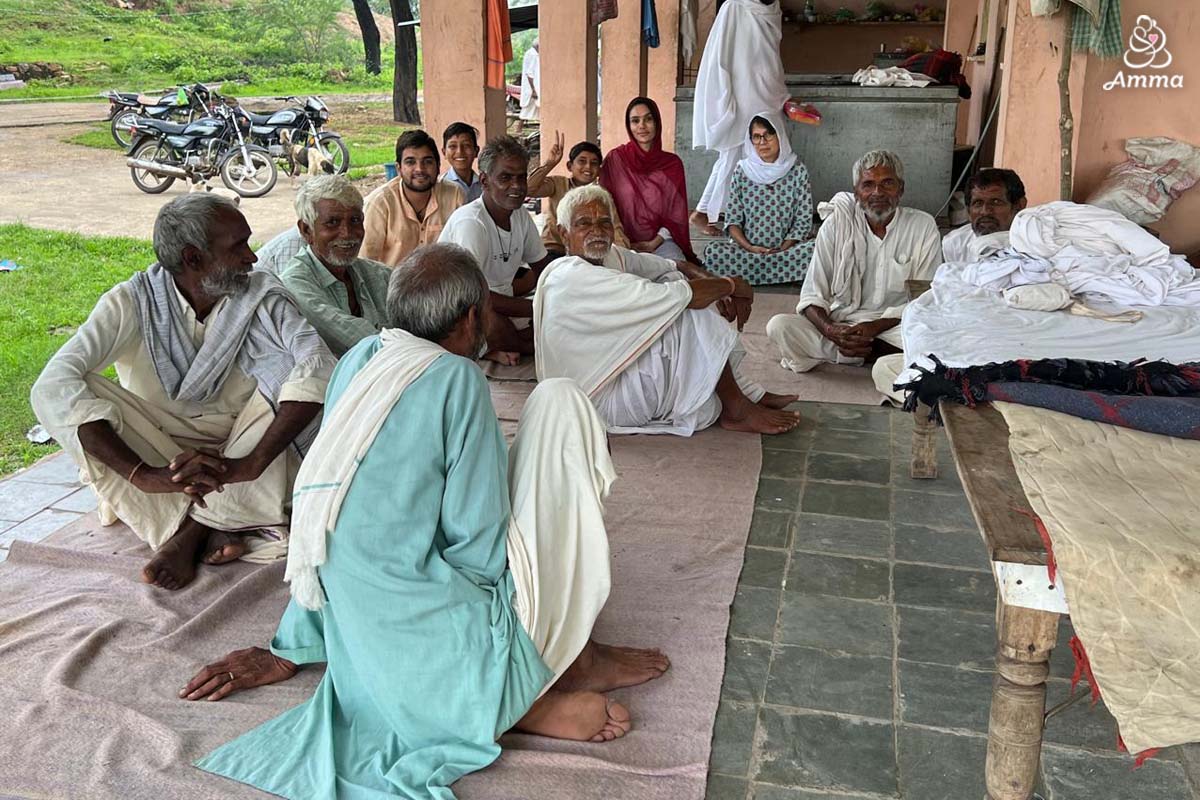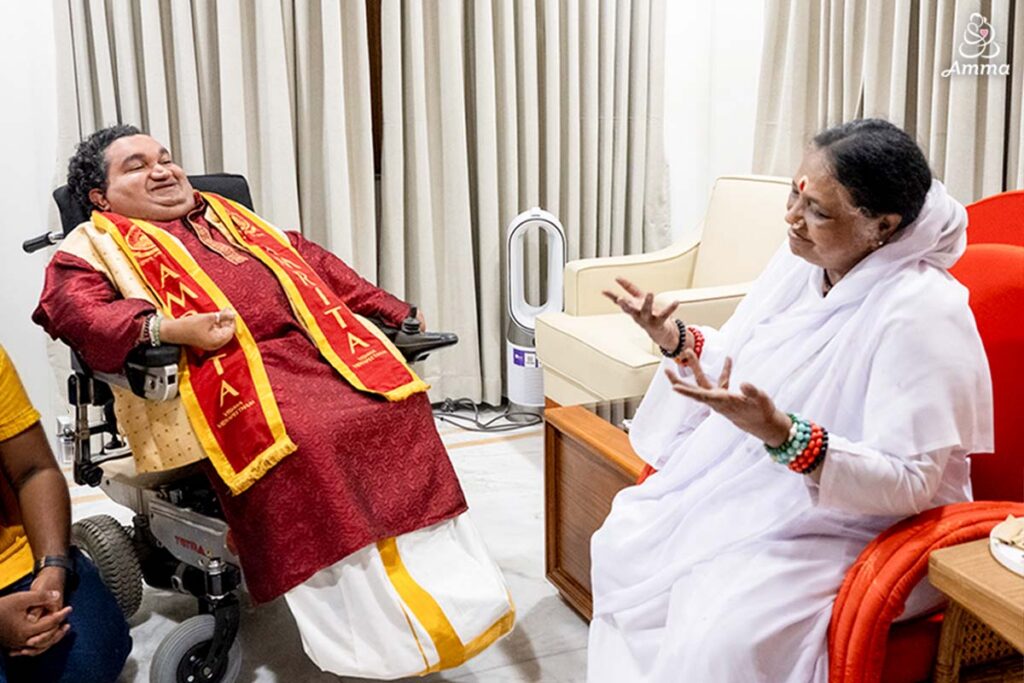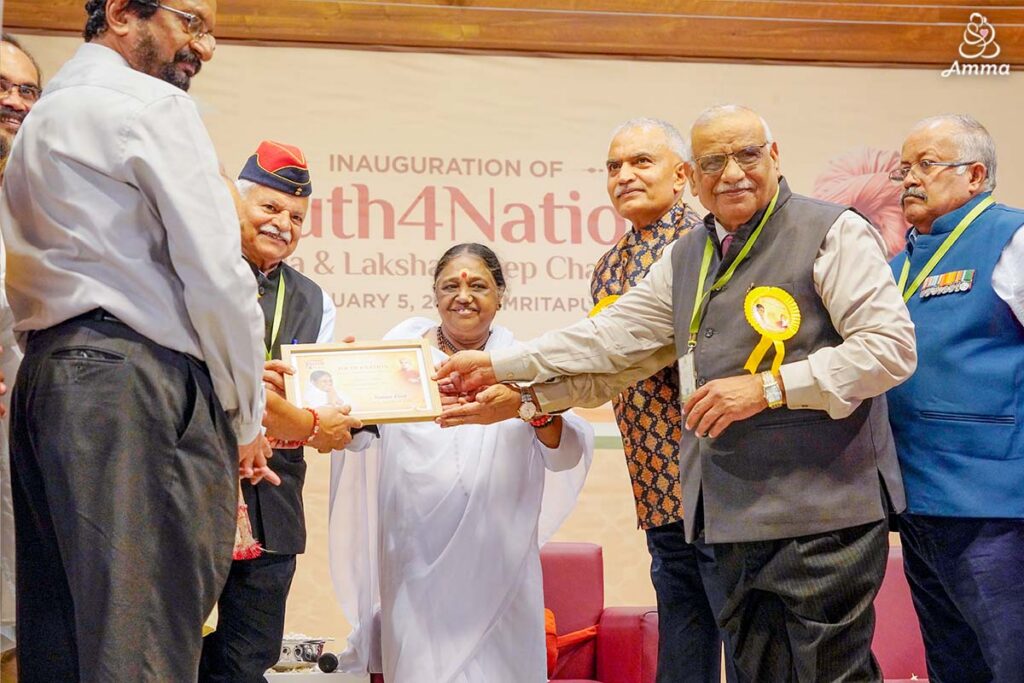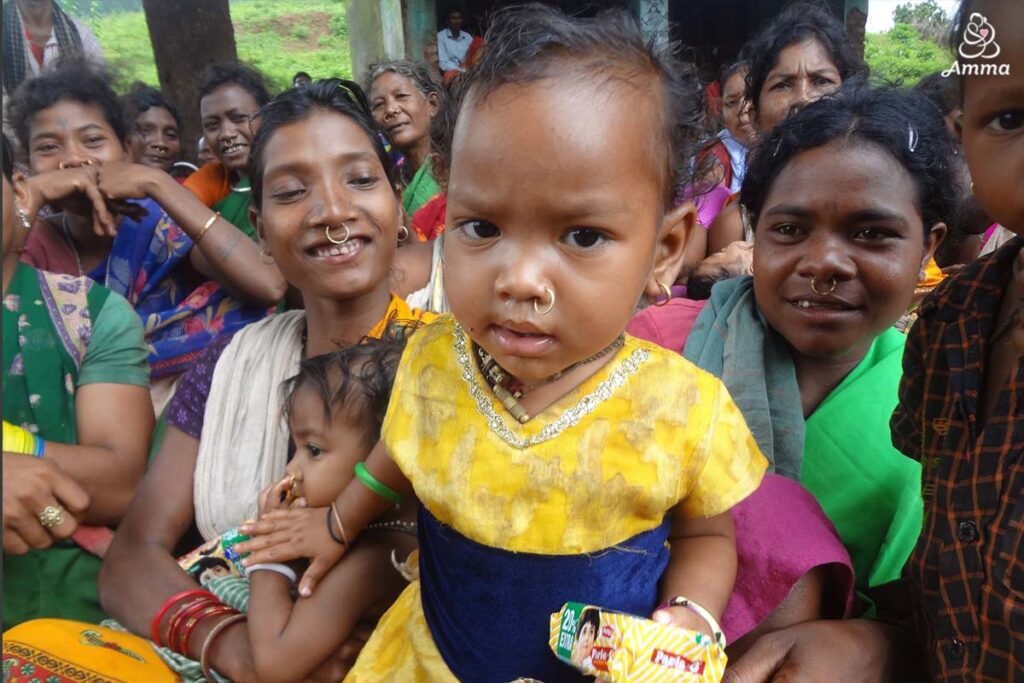Hailing from Shiraz, Iran, Niloofar Abed is helping develop a remarkably innovative technology for the remote village of Harirampura, Rajasthan. Her work was inspired by Amma’s vision of harmonising sustainable development for humanity with the well-being of animals in their natural habitats.
Niloofar is among the first batch of PhD scholars with Amrita University’s E4LIFE PhD Program. Their graduation will be celebrated this Saturday at the Amritpuri campus. Among the 23 researchers, 16 are from abroad including Ghana, Iran, Nigeria, Tanzania, Uganda, UK, Zambia, and Zimbabwe.
Guided by Amma’s vision, the University commits $5.1 million each year to support 100 fully-funded fellowships for students dedicated to developing sustainable solutions for rural India. These scholars, representing a wide range of disciplines—including engineering, social sciences, health sciences, and environmental studies—engage in rigorous, field-based research directly in villages across the country.
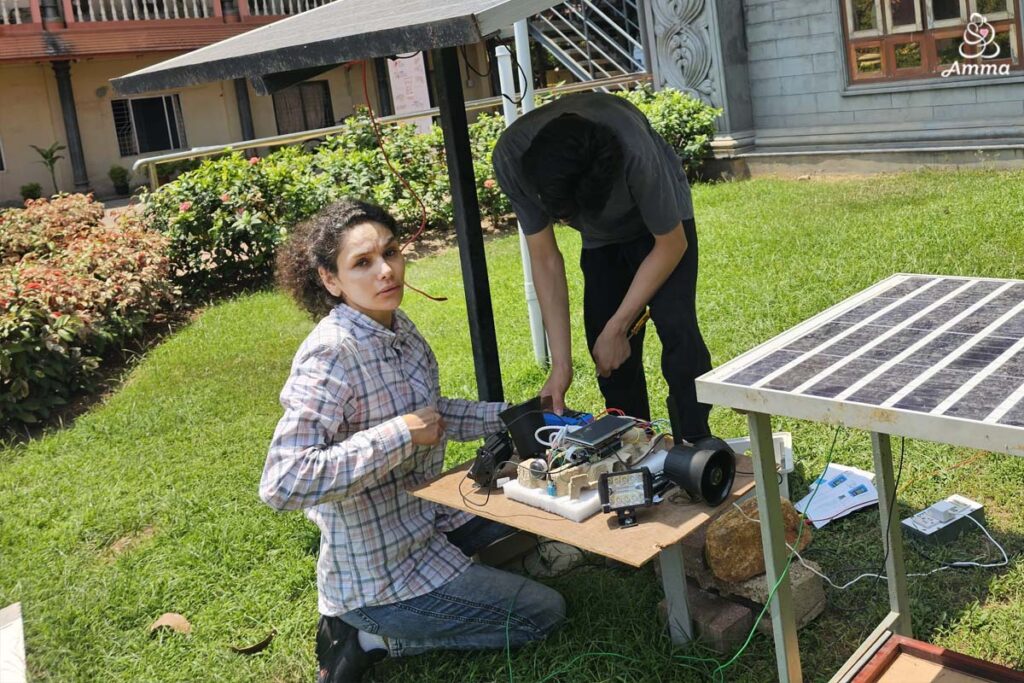
Niloofar’s work focuses on protecting both the community and the surrounding wildlife from harming each other. How is she doing this? Technically, her research is titled “Developing Species-Specific Defence Mechanisms to Enhance Farm Protection, Sustainable Livelihoods, and Food Security”.
And what does that mean? Niloofar and her team are working with Harirampura’s farmers to find new ways to protect their crops from attacks by animals, especially wild boars and Nilgai, Asia’s largest antelope.
At the centre is the creation of a visionary system, for both the people and the wildlife—a solar-powered monitoring network that operates 24 hours a day to send alerts to farmers when threats are near. If the animals come close to crops, it also makes noise to repel them.
This solution is a win-win for both the village and the surrounding environment. Crops are protected and the animals return to their natural habitats.
But how did Niloofar arrive in rural Rajasthan from Iran’s city of poets, famous for its gardens, nightingales, flowers, silverware and carpet-weaving? She shares her story of why she decided to undertake this work.
Farmers’ right to protect their crops and thereby their livelihood should be balanced with benevolent animal welfare.
Niloofar Abed, E4Life PhD Scholar
A Transformation: From Taking to Giving
In Shiraz, Niloofar pursued her Bachelor’s and Master’s degrees in Mechanics of Biosystems Engineering at Shiraz University and worked in the oil & gas and petrochemical industries.
“It is plain destiny that I am here in the realm of sustainability. One day at work, standing near the gas flare, I looked down at the ocean water, which could have been a thriving marine ecosystem. What I saw was destruction: fish floating lifelessly, dead plants drifting in polluted waters,” shares Niloofar.
“It was a moment of realization. I was part of an industry that was taking more from nature than it could ever give back. The experience changed something within me. I started questioning the cost of industrial progress and thinking about natural resources, biodiversity conservation and the responsibility we have towards future generations.”
Hearing about the Amrita School for Sustainable Futures, Niloofar was fascinated by its concept of consensus and collective problem-solving for sustainable solutions that do not harm the planet. She discovered her own passion for creating technological innovations that transform rural lives and lead to a better world for all.
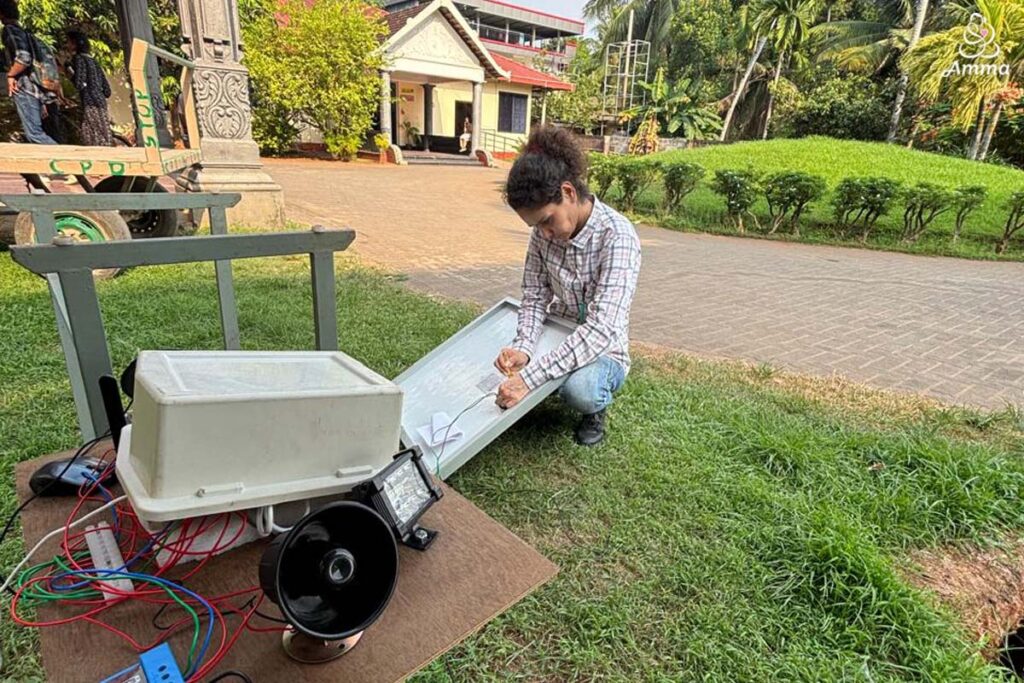
Animal Welfare at the Heart of Sustainable Development
Niloofar’s work in Harirampura began as a Live-in-Labs internship. Amma adopted the community in 2013 when she vastly expanded her humanitarian work to uplift impoverished villages across India.
When Niloofar arrived, she observed the multiple challenges the people endure in the face of climate change—acute water scarcity, erratic monsoons, and poor irrigation facilities.
Farmers told her several stories about animal attacks on crops and how helpless they felt. This made it one of the most significant threats to agricultural productivity, especially during harvest time. With over 90% occurring during the dark hours of the night, it was difficult to prevent them.
Niloofar was familiar with the Amrita approach to village empowerment. The belief is not to push through solutions, but to create a culture of shared responsibility and build resilience. The teams not only leverage the indigenous knowledge systems, but also collaborate with the community members to find sustainable solutions.
Consultations with the community began. A consensus was reached that Harirampura’s animals should remain safe. Niloofar said, “I am in complete concurrence with the villagers who are staunch supporters of animal rights. The animals desperately need food to survive, and they should not suffer discrimination.
“Farmers’ right to protect their crops and thereby their livelihood should be balanced with benevolent animal welfare. It is not acceptable to me that humans endanger the lives of other forms on Earth.”
To ensure community-wide participation and support for her proposed solutions, Niloofar was in search of finding a protective balance between crops and preserving wildlife, recognising the ecological importance of Nilgai and wild boar in the local ecosystem.
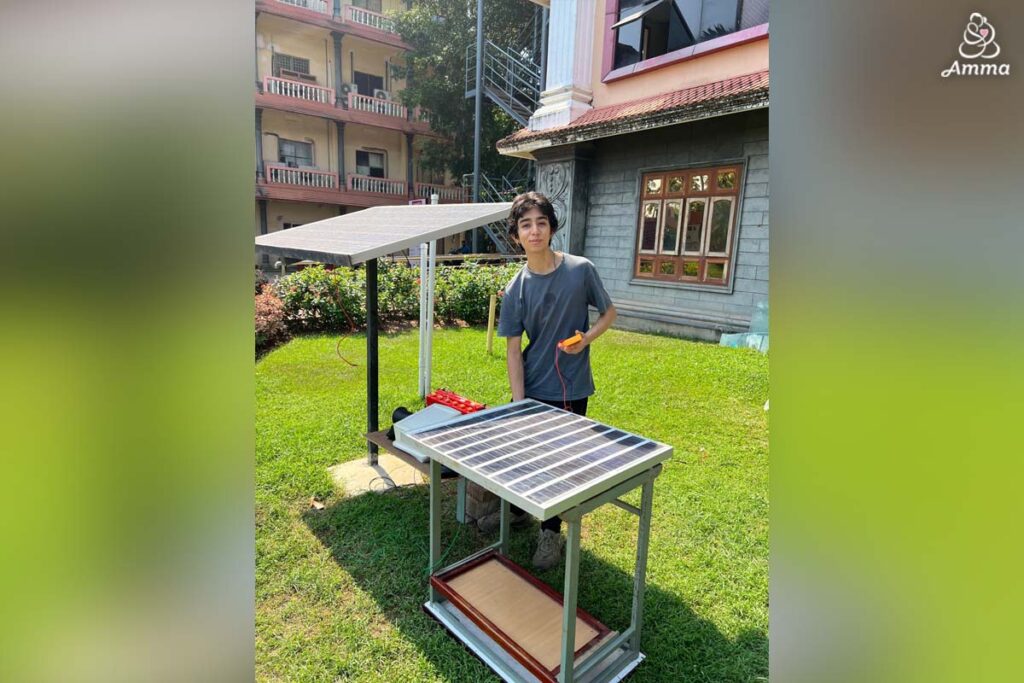
Mission Made Possible
The prototype was readied—a solar-powered and versatile crop protection system, capable of repelling animals and providing real-time monitoring that also gave a timely response to potential threats.
By leveraging advanced object detection and real-time analysis, the system could automatically identify intruding animals and activate non-harmful deterrents to keep them away from farms and crops.
Equipped with AI and IoT connectivity, the device allows users to monitor their fields in real-time through a dedicated application, giving them complete control over the system and its deterrent mechanisms.
Recovery Zone Mechanism
Beyond simply repelling animals, this groundbreaking work introduces a first-of-its-kind Recovery Zone Mechanism. Displaced animals are guided to a safe area where they can rest, destress, recover and then return to their natural habitats. This further supports the peaceful coexistence of farmers and wildlife.
What this also means is that Niloofar’s system is not just about her own innovation in sustainable development, but about the rights of all species on Earth.
With successful testing, this AI-driven solution marks a significant step toward sustainable agriculture, balancing wildlife conservation and food security.
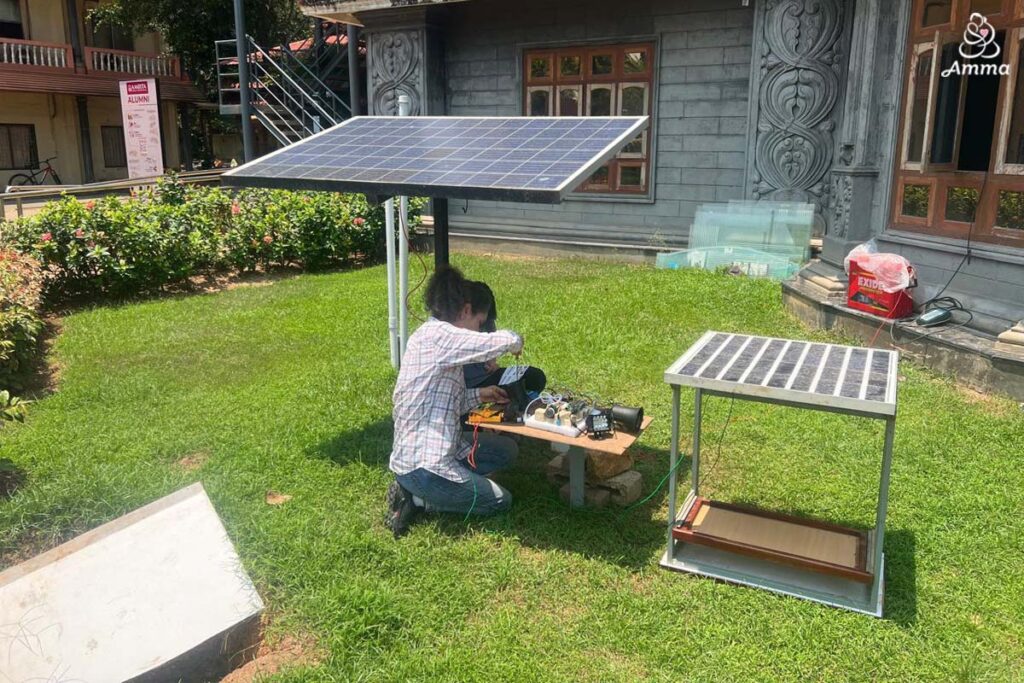
Technology for the Well-being of All
By understanding the product’s functioning, the farmers were grateful that their night stress could be eliminated, improving their health and the overall well-being of their communities. With this smart gadget, there was no reason for the menfolk to stay away from their families throughout the night to take care of their crops.
The effective crop protection system would decrease crop loss and increase agricultural income, reduce food insecurity, and secure livelihoods, which then leads to improving women’s health and education.
Niloofar is passionate about achieving the desired outcome. She concludes: “Seeing the positive impact on the people’s lives is what drives me. My father had a motto that defined our upbringing: to build human character and to live in service of others.
“From a young age, he encouraged us to pursue education with purpose, and to share all our knowledge, skills, and experience generously, just as nature gives freely and unconditionally to all. This principle has stayed with me. I have always been deeply committed to my path and the goals I have chosen.”


